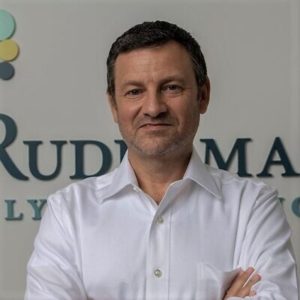By Jay Ruderman

(JNS) For centuries, Jews have debated who belongs to our community. While embracing a more inclusive Jewish world is an important and worthwhile conversation, more immediately, our efforts should be focused on the current existential threat facing our community: antisemitism.
This debate is, ironically, driving Jews further apart, undermining the legitimacy of Israel and affecting the security of U.S. Jews.
The far-right exemplify historical antisemitism, characterized by white supremacists and fringe groups that will always exist. The creeping antisemitism on the far-left, meanwhile, entails a fundamental misunderstanding of the Arab-Israeli conflict and looks at that conflict in a naive, cartoonish way. On both sides of the political aisle, analogies have degraded the memory of the Holocaust while pointing to issues on the opposing side.
Antisemitism is an age-old phenomenon not beholden to any political movement. And while it existed well before 1948, the establishment of modern-day Israel has introduced a new and insidious form of Jew-hatred. This is why a partisan debate on antisemitism is misguided, especially when the current situation is so dire.
While the connection between antisemitism and anti-Zionism was historically a blurred one, today it is becoming more in focus. The latest round of violence between Israel and Hamas brought Jew-haters out of the woodwork and virtually gave a green light for antisemitism to enter the mainstream. The latest effort by certain Congress members to defund the Iron Dome air-defense system is an example of how the extreme left, which labels itself as pro-Palestinian, can exhibit antisemitism. Not funding this purely defensive military-grade equipment won’t save the lives of Palestinians; rather, it will only result in the death of Jews and Palestinians as well.
Moreover, violent extremists are weaponizing Israel as an excuse to attack Jews in the United States. When attackers stormed into a restaurant in Los Angeles last May, they did not shout, “Where are the Israelis?” They exclaimed, “Who here is a Jew?”
Since 2014, we have seen a dramatic shift regarding the discourse around Israel. In a nation that celebrates free speech, almost any conversation is encouraged. But when that conversation borders on incitement and causes Jews to feel unsafe, then there is a serious problem. The U.S. State Department upholds the International Holocaust Remembrance Alliance’s working definition of antisemitism, which posits that it can and does entail attempts to delegitimize Israel.
As for both Jews and non-Jews who want to criticize Israel and flinch every time they are accused of being antisemitic or a self-hating Jew, I would say this: We can have a whole discussion about the standards that Israel is held up to, as well as its policies. However, Israel is held to a different standard than any other country in the world when defending its citizens.
A misguided and simplified narrative that looks at the Israeli-Palestinian conflict as a powerful aggressor and an innocent underdog fails to understand that there are two sides to this complex situation, with people across Israel’s border in the Middle East all too often committed to the country’s demise. Moreover, an obsessed and myopic view on what the one Jewish state in the world does or does not do? That is antisemitic.
No matter what political affiliation we have, we are Jews first and foremost. It is crucial to come together on this issue before we splinter off into partisan leanings.
Across the Atlantic, for Israelis who think this is exclusively a problem for American Jews, they must understand that the broader erosion of support for Israel may very well lead to diminishing bipartisan support for the Jewish state, which will have a detrimental effect on Israel’s own security.
On a macro level, though, antisemitism has historically been the canary in a coal mine. Any society that actively embraced Jew-hatred has shown acceptance for discrimination and prejudice that far extends beyond Jews. It may start with us, but it never ends with us.
To that end, I call on communal and world leaders to call out antisemitism when they see it and advocate for schools to actively teach about this complex phenomenon and what constitutes it (while also explaining that criticism of Israel is legitimate and valid). Meanwhile, politicians must cease using antisemitism as a political tool. Too often, we see politicians blame the opposing party of having anti-Jewish members for the sake of accruing political capital. Jews are not political pawns. We are active, contributing citizens of the United States who deserve protection and security amid this growing crisis.
As for our community, right now it is imperative for global Jewry to come together. It should not have to reach a point where we all speak out against antisemitism only when violence breaks out. We do not need another Pittsburgh or Poway. What we need is unity.
*
Jay Ruderman is president of the Ruderman Family Foundation.
Preceding provided by JNS.org